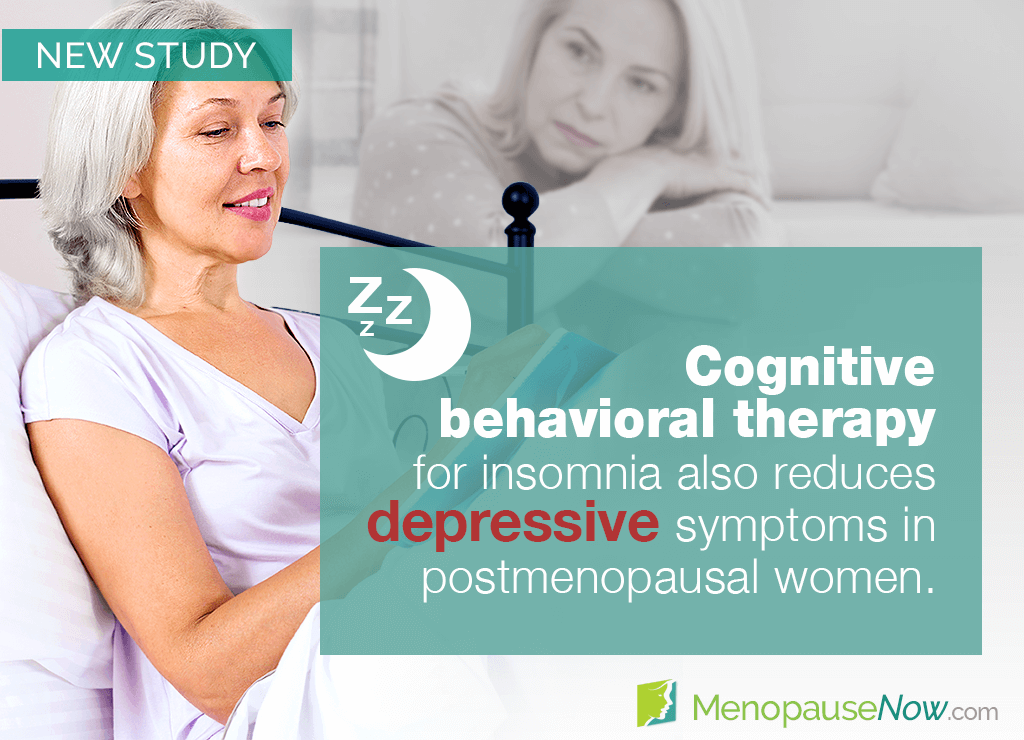While undergoing cognitive-behavioral therapy for insomnia (CBTI) has shown beneficial for alleviating insomnia in women after menopause, its use for middle-age depression has not been confirmed yet.1
In this 2019 trial, American researchers evaluated the effects of CBTI on depression in postmenopausal women with insomnia. They also assessed the efficacy of sleep restriction therapy (SRT), which is a component of CBTI.
Study Design
This clinical trial was conducted across six hospitals throughout the state of Michigan in the United States. Participants were 117 postmenopausal women with moderately severe depression and chronic insomnia.
They were split into three groups, each with different type of treatment:
- Group 1: Sleep hygiene education control
- Group 2: Sleep restriction therapy
- Group 3: Cognitive-behavioral therapy for insomnia
Measured outcomes included improvements in depressive symptoms, maladaptive thinking, and somatic hyperarousal. Assessments were done before and at the end of the trial as well as six months after its completion.
Study Findings
The best outcomes in reducing depressive symptoms were seen in women undergoing CBTI. Those in the SRT group also showed reduced depressive symptoms, but these were not seen until the six-month, post-treatment check-up.
In terms of treatments' effects on maladaptive thinking, both CBTI and SRT significantly improved women's dysfunctional beliefs about sleep and had modest effect on pre-sleep cognitive arousal, rumination, and worry.
Lastly, CBTI led to significant improvements in pre-sleep somatic arousal, while SRT caused moderate improvements.
No beneficial improvements were seen in the control group undergoing sleep hygiene education.
What Does It Mean?
This clinical trial has shown that women with depression and insomnia can benefit from CBTI and SRT, with CBTI offering better results.
The most notable improvements were seen in terms of reductions in depressive symptoms, dysfunctional beliefs about sleep, and pre-sleep somatic hyperarousal. All of these benefits were directly associated with improved sleep.
Since insomnia can trigger or worsen depression, identifying behavioral therapies that can relieve both ailments can bring tangible benefits to postmenopausal women.
Sources
- Sleep Medicine. (2019). Treating insomnia improves depression, maladaptive thinking, and hyperarousal in postmenopausal women: comparing cognitive-behavioral therapy for insomnia (CBTI), sleep restriction therapy, and sleep hygiene education. Retrieved February 17, 2021 from https://www.sciencedirect.com/science/article/abs/pii/S1389945718306750
Footnotes:
- JAMA Internal Medicine. (2016). Telephone-Based Cognitive Behavioral Therapy for Insomnia in Perimenopausal and Postmenopausal Women With Vasomotor Symptoms: A MsFLASH Randomized Clinical Trial. Retrieved February 17, 2021 from https://pubmed.ncbi.nlm.nih.gov/27213646/

